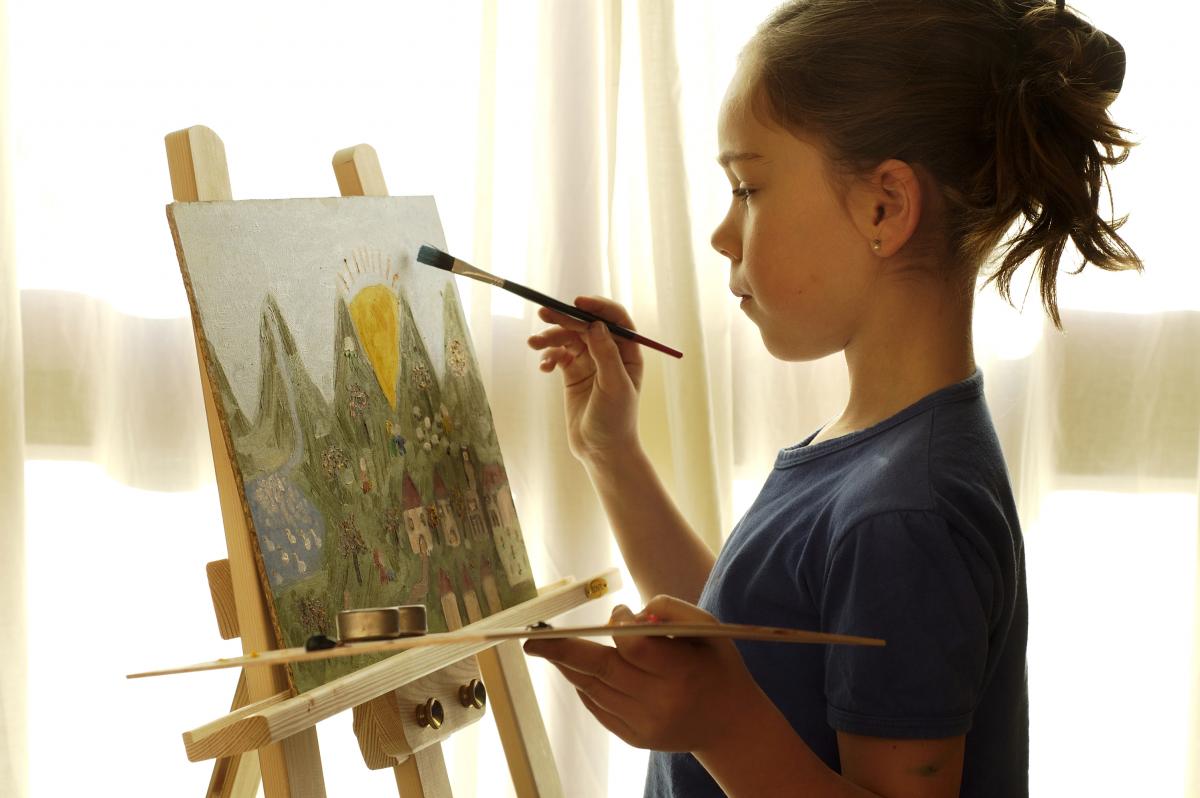
Culture enriches lives, and participation in creative and cultural activities can have a significant impact on young people, by developing their appreciation, their skills and helping them to learn.
This has been shown repeatedly in international studies, and has also been backed up by recent evaluations of major programmes such as Creative Partnerships and Museums’ Strategic Commissioning. What these evaluations have shown is that culture and the arts can help young people achieve all of the Every Child Matters outcomes.
Cultural activities also gives young people the chance to develop important life skills such as creativity.
As well as being valuable and enjoyable in its own right, participation in cultural activities also gives young people the chance to develop important life skills such as creativity, confidence, self-discipline, effective communication and the ability to work in teams. These skills are particularly important in a world of rapid technological and social change where the cultural and creative industries are increasingly important to our economic future.
That is why a commitment was made in the Children’s Plan to work towards a position where all children and young people — no matter where they live or what their background — have the chance to participate in at least five hours of high-quality culture per week, in and out of school. The Find Your Talent programme looks at different ways of offering young people a range of cultural experiences.
The aim is to give young people the chance to develop as:
- informed spectators (through attending top quality theatre and dance performances, world class exhibitions, galleries, museums and heritage sites)
- participants and creators (through learning a musical instrument, playing and singing in ensembles, taking part in theatre and dance performances, producing artwork, making films and media art, or curating an exhibition).
Arts and cultural activities are also an important stimulus to develop young people’s creativity. Learning Outside the Classroom activities which give children and young people the opportunity to work on real-life challenges; handle risk; develop their capacity to think imaginatively and creatively; define and explore complex problems; use and adapt multiple resources both within their community and beyond in order to experiment and devise solutions to these problems — all of these experiences nurture the mix of thinking, imagining, facing the unknown and making things happen which are the ingredients of creativity.
School Art and Design courses provide students with a wide range of creative, exciting and stimulating opportunities to explore their artistic interests and design skills in ways that are personally relevant.
All schools aim to develop students’ ability to engage in practical ways with the processes of Art and Design. And at examination level all courses build on students’ innate creative skills through learning and doing in order to develop imaginative ways of working. They aim to enhance students’ knowledge and understanding of media, materials and technologies in historical and contemporary contexts, societies and cultures.
The educational visits that can enhance the learning experiences outside the classroom obviously include art galleries and studios, but there are now many opportunities to have hands-on experiences in a variety of skills, including sculpture, wood carving, furniture making, weaving, jewelry making, and pottery.
The BBC offer a fabulous section of their website called Your Paintings. It boasts a superb schools section which grew out of a Your Painitings Masterpieces in Schools event that took place across the country. The event gave thousands of UK school children the opportunity to experience great art close-up when a masterpiece visited their schools for the day. To support the project the BBC have curated a host of online resources including: slideshows of paintings with ideas for use in the classroom; profiles of careers in the art world; and a guide to artistic styles and movements. These cover many areas of the curriculum including History, Music, Geography, English and Drama as well as Art.
Main organisations:
Arts Council
Engage
National Society for Education in Art and Design
National Foundation for Educational Research
Inclusion: NASEN, and the Royal Academy of Arts runs regular sensory workshops for SEN students.
Thought of visiting?
The National Gallery
National Portrait Gallery
Royal Academy of Arts
Tate Modern
The Tate, St Ives
Victoria and Albert Museum
Birmingham Art Gallery
Cardiff Art Gallery at the National Museum Cardiff
The Eden Project, Cornwall
Keith Harding’s World of Mechanical Music, Gloucester
Sir Richard Arkwright’s Cromford Mill, Derbyshire
Snibston Discovery Park, Coalville, Leicestershire
Centre for Alternative Technology, Machynlleth
The National Stone Centre, Wirksworth
Articles about Art, Education and Trips on SchoolTripsAdvisor
Find out about the National Portrait Gallery's exhibition: Real Tudors: Kings & Queens Rediscovered
Read Turner Prize-winning artist Grayson Perry's thoughts on Art Education, published recently in the TES.




